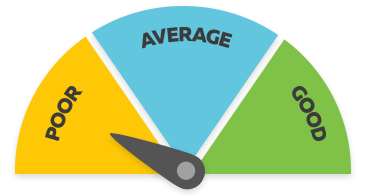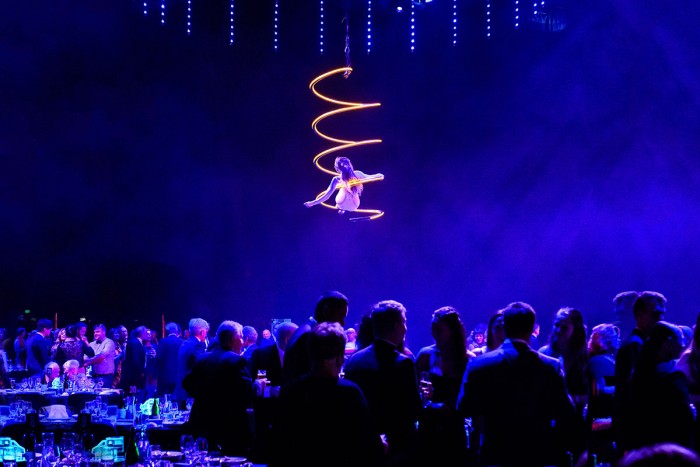Entertainer
Kaiwhakangahau
Alternative titles for this job
Entertainers perform a variety of acts, such as dance, drama or acrobatics, to entertain an audience.
Pay
Pay for entertainers varies depending on your ability, how often you work and what type of work you do.
Source: Colossal and Van Helden, 2018.
Job opportunities
Pay
Pay for entertainers varies depending on your ability, how often you work, the size of the production you are working on, and what type of work you do.
Work may be irregular, and many entertainers rely on supplementary jobs to make a living.
Source: Colossal, 2018; and Van Helden, 2018.
(This information is a guide only. Find out more about the sources of our pay information)
What you will do
Entertainers may do some or all of the following:
- write and research performance routines
- rehearse their acts
- design and dress in costumes to suit their performances
- perform their acts in front of an audience
- record and edit their videos and photos for social media
- promote and publicise their acts.
Skills and knowledge
Entertainers need to have:
- excellent performance skills
- creative ability and skill in their speciality area
- knowledge of different performance and acting techniques
- knowledge of body posture and movement
- knowledge of human behaviour and character development
- strong business, marketing and planning skills, as most entertainers are self-employed.
Working conditions
Entertainers:
- work irregular hours, including weekends and evenings
- work at a range of places including theatres, conferences, festivals and corporate functions, weddings and children's birthday parties
- may travel nationally and internationally to perform.
What's the job really like?

Imogen Stone
Performing Artist
How did you become a circus artist?
"My background is in dance and gymnastics so I took very naturally to circus skills. After training for six or so years I began working as a freelance circus performer for events and with touring companies.
"There were very few performance opportunities in Wellington so I created Colossal with two other passionate directors."
What do you love, and what do you find challenging about your work with Colossal?
"I love working with all the talented and hard-working artists, and seeing what everyone in the industry is creating. I love how audiences respond to circus – it's such a versatile and exciting art form, which can resonate with everyone. I love working alongside the two other directors of Colossal, Zane and Degge Jarvie – they're always inspiring!
"I love that my job is different every day, but this is also the most challenging part. Every event, client relationship and performance environment is different so we need to be flexible and prepared for the unexpected."
What's your advice to budding entertainers?
"Never stop learning and improving your craft, and always respect your audiences."
Entry requirements
There are no specific requirements to become an entertainer. However, a tertiary qualification, such as a Bachelor of Performing Arts, may be useful.
Secondary education
There are no specific secondary education requirements to become an entertainer. However, media studies and music, dance and drama are useful.
Personal requirements
Entertainers need to be:
- observant
- able to communicate ideas and feelings
- outgoing, confident and comfortable working in front of an audience
- able to deal with negative feedback
- adaptable, as they need to be able to respond to the audience
- disciplined and motivated
- patient and persistent enough to perfect their act.
Useful experience
Useful experience for entertainers includes:
- public speaking
- theatre sports and debating
- acting, dancing or singing
- other experience performing in front of an audience
- artistic or creative work.
Physical requirements
Physical requirements for entertainers depend on what kind of performance work they do. For example:
- human statues need to have a good level of stamina and concentration
- jugglers need to have good hand-eye co-ordination
- stilt walkers must have good balance.
Find out more about training
What are the chances of getting a job?
Few opportunities for entertainers
It is difficult to get work as an entertainer in New Zealand because the performing arts industry is small.
Many entertainers do a second job to supplement their income.
Your chances of getting a job are best if you network regularly with industry contacts.
According to the Census, 696 entertainers worked in New Zealand in 2018.
Most entertainers work for themselves
Most entertainers are self-employed and work on contract for businesses such as entertainment events companies.
Sources
- Ministry of Business, Innovation and Employment, '2003-2012 Occupation Data' (prepared for careers.govt.nz), 2015.
- Ministry of Culture and Heritage, ‘Support for Arts and Music Sector Recovery’ (media release), 29 May 2020.
- Stats NZ, '2018 Census Data', 2019.
- Stone, I, co-director, COLOSSAL, careers.govt.nz interview, May 2018.
- Van Helden, A, magician, careers.govt.nz interview, April 2018.
(This information is a guide only. Find out more about the sources of our job opportunities information)
Progression and specialisations
Entertainers usually specialise in one role, such as:
- Acrobat
- Acrobats use trapezes to perform feats of balance and agility, often high off the ground.
- Aerial Dancer and Circus Artist
- Aerial dancers and circus artists perform dances and feats, sometimes above audience members heads.
- Clown
- Clowns use physical performance and humour to entertain audiences.
- Comedian
- Comedians use humour to entertain audiences.
- Hypnotist
- Hypnotists use the power of suggestion to persuade their subjects to amuse an audience.
- Magician
- Magicians use illusion and sleight of hand to perform magic tricks.
Last updated 21 November 2023

